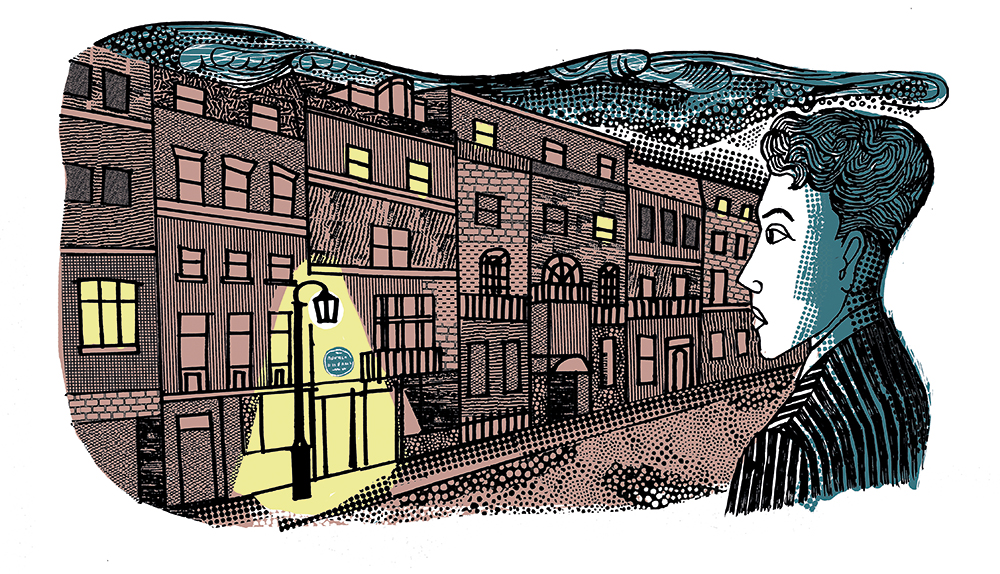This week English Heritage has put up a blue plaque to the novelist Ronald Firbank, and I know, from 40 years of going on about Firbank, that not everyone who sees it will have heard of him. He falls into that intriguing and important category of blue-plaque subjects who are not household names, but whose work was path-breaking, and influence enduring. Each plaque that goes up is the result, first and foremost, of advocacy by a member of the public, and after that of strong support from the deciding panel, on which I sat for six years. We ended up each time rejecting the majority of the proposals, and it was a happy day for me, an almost unexpected breakthrough, when Firbank was proposed five years ago, and the panel readily accepted him. Acceptance has not always been his lot.
In person he was both extremely shy and a Wildean dandy who wore make-up and painted his nails
Why does he merit this honour? I think for three reasons: his own remarkable work, his literary influence, and something more diffuse but equally important, his defining presence as a queer icon.







Comments
Join the debate for just $5 for 3 months
Be part of the conversation with other Spectator readers by getting your first three months for $5.
UNLOCK ACCESS Just $5 for 3 monthsAlready a subscriber? Log in